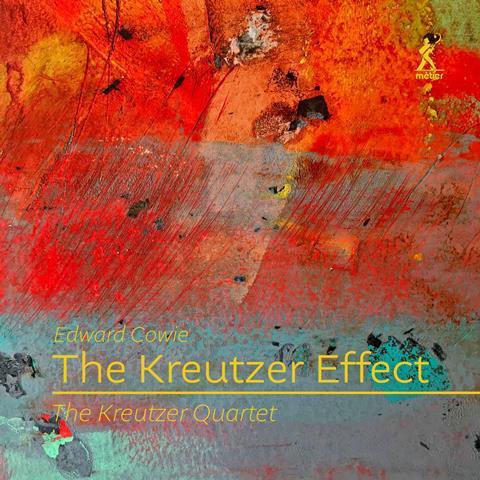Musical comradeship meets wonder at the natural world to telling effect

THE STRAD RECOMMENDS
The Strad Issue: September 2024
Description: Musical comradeship meets wonder at the natural world to telling effect
Musicians: Kreutzer Quartet
Works: Cowie: Glaukopis; Whatever happened to Icarus?; One Second Fiddle; Menurida Variants; String Quartet no.7 ‘Western Australia’
Catalogue number: MÉTIER MEX77103
Two compelling passions for senior British composer Edward Cowie (now based in Australia) come together on this generously filled release. First is Cowie’s close and clearly affectionate relationship with the UK-based Kreutzer Quartet. The group has committed itself to Cowie’s music for many years, and that closeness and innate sense of understanding is everywhere evident in these vividly characterised performances, offered with striking confidence, conviction and insight.
Cowie’s second, equally strong, passion is for the natural world, and all the pieces here – whether written for the Kreutzer musicians as individuals or for the foursome – have connections with nature. Cellist Neil Heyde gives a superbly judged account of the five owl portraits of Cowie’s Glaukopis, with every note and gesture wrung for dramatic meaning, and some uncannily convincing owl cries too.
Kreutzer leader Peter Sheppard Skaerved stands in for an injured Clifton Harrison in the searing intensity of the climate change-themed Whatever happened to Icarus? for solo viola, while also delivering a fierce and focused performance of Cowie’s larger-than-life lyrebird portrait, Menurida Variants. The release’s single question mark hangs over Cowie’s One Second Fiddle, written for Kreutzer second violinist Mihailo Trandafilovski, whose Beckett-like spoken text and theatricality might lend themselves better to a live rather than a recorded encounter.
Review: Finnissy: String Quartets nos.2 & 3
Review: Reicha: Complete String Quartets vol.1: Quartets in C major op.48 no.1 & G major op.48 no.2
Read: ‘A very supportive role’: 8 tips for second violinists
The spectacular, sometimes alienating visions of Western Australia in Cowie’s String Quartet no.7 provide the release with a conclusion rich in awe, and the Kreutzer players dispatch the composer’s intricate, complex, ever-changing quartet textures as if they’d been immersed in them all their lives. All told, a deeply appealing release, its performances captured in appropriately rich, close and natural sound.
DAVID KETTLE











































No comments yet